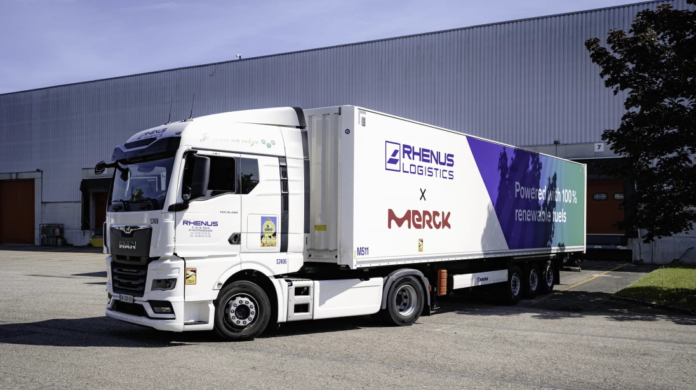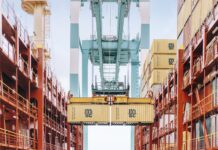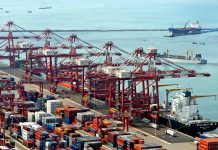
Rhenus Logistics and Merck, a global leader in life sciences, have unveiled a new sustainable logistics initiative in Alsace: a biodiesel B100-powered shuttle service connecting Merck’s Molsheim site with Rhenus’ warehouse in Strasbourg.
The initiative is part of a broader decarbonization strategy aimed at reducing greenhouse gas emissions and promoting more sustainable logistics operations.
The B100 biodiesel, derived entirely from renewable sources such as vegetable oils, enables substantial emissions cuts without compromising service efficiency.
To support the rollout, Rhenus has invested in a dedicated fleet of B100-compatible trucks and trailers, as well as a bespoke refueling station at its Strasbourg logistics hub on Rue du Havre. Advanced emissions monitoring systems have also been installed to track environmental performance and ensure transparency.
As part of this commitment, Rhenus now publishes monthly carbon footprint data for the Merck shuttle service.
Beyond emissions reduction, the initiative enhances air quality in the Strasbourg area by limiting pollutants such as particulate matter and nitrogen oxides, supporting both public health and environmental goals in urban logistics zones.
Laurent Brèche, General Manager at Rhenus France noted that by aligning Rhenus’ logistics innovation with Merck’s sustainability ambitions, there is a measurable progress while preparing for an all-electric fleet in the near future.
The B100 program is a transitional solution as both companies prepare for a shift to electric mobility. In the interim, it ensures operational continuity, including preserving shift schedules, while significantly cutting environmental impact.
Looking ahead, Rhenus aims to expand its B100-powered fleet across France and continue collaborating with Merck on optimizing logistics infrastructure for electric vehicle integration.





